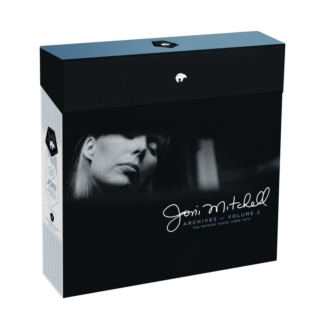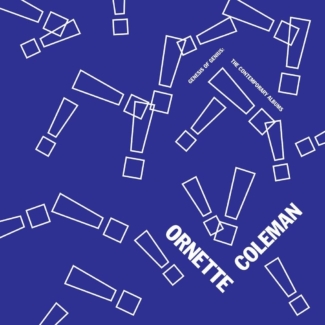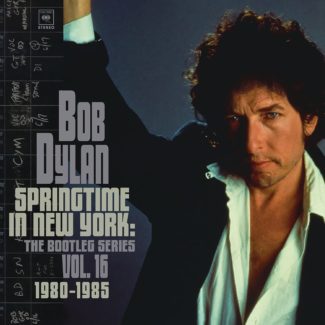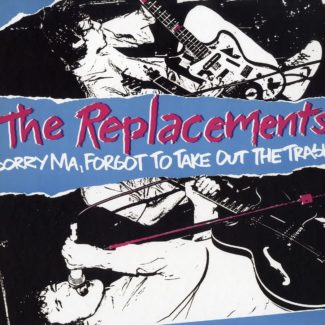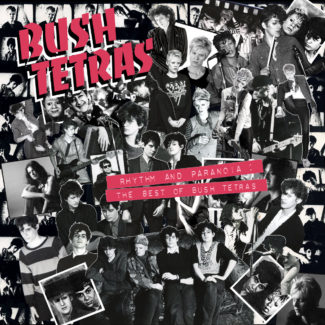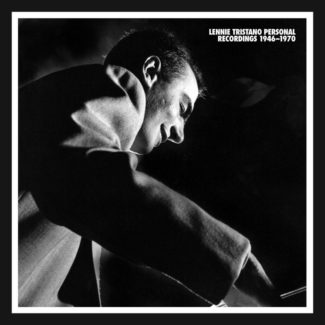Brandishing the same quirky character as its predecessor, Volume 2 of Mitchell’s Archives series covers the period of her first four albums and coincident rise to fame. There’s over six hours of music here, much of it previously unreleased. Yet if you’re expecting revelations into Mitchell’s songwriting processes, you’re liable to be disappointed. Much of the set is turned over to live concerts, presented in full in a few cases (a long-lost 1968 Ottawa date recorded by Jimi Hendrix (!), a poised solo Carnegie Hall debut from 1969, a John Peel-hosted BBC session from 1970). On the few studio demos here, some lyrics aren’t quite there, but there’s no evidence of any kind of radical restructuring. The biggest discovery might come from the rambling new interview (itself a rarity for Mitchell these days). Asked repeatedly if she regrets decisions made along the way, the answer is almost always ‘no’. “Like all of my albums,” she answers. And there it is: the key to her remarkable success. Famously disdainful of producers, Mitchell has always produced herself. (the exception is her debut, Song of the Seagull – she’s complained long and loudly about David Crosby’s production.) What we hear on her recordings is exactly what Mitchell hears in her head. Unlike her peers, Mitchell never cultivated a persona or pretended to be something she’s not. Her music has gone through lots of changes. And she’s not without contradictions – a strong and brave female in an industry with few (especially in the 60s/70s), yet one whose life and music have leaned heavily on her male partners. And Mitchell was initially hesitant to issue these early recordings for fear of sounding like an ‘ingenue’. (Not unfounded – her early nervous performances of other’s songs on Volume 1 can be hard to take). Yet rarely has an artist emerged so early and so completely comfortable in her own skin. She left “Both Sides Now”, already a huge hit for Judy Collins, off her debut album because she felt it didn’t fit thematically. She shares her new songs, lyrics incomplete, in front of live audiences, where she seems completely at home. In front of an all-star crowd that includes Bob Dylan and her parents, she nails her solo debut at Carnegie Hall. The quirks in this set come with the head-scratching inclusions; pointless small talk with Dick Cavett, barely intelligible apartment recordings, perfunctory on-stage introductions (with a couple of exceptions – how did I miss that “Circle Game” is an answer song to “Sugar Mountain”?). There are a few cool rarities; her version of “Urge for Going”, other odd orphaned tracks. But for the most part, we get the masterful songs that eventually find their way on her early albums. These artfully woven stories celebrate life, love, pain, and humanity, and culminate in her widely acclaimed fourth album, Blue. Hopeful and at times emotionally gutting, confessional in a way no songwriter had previously dared, there are only hints here to the album’s creation (alternates of “River”, “A Case of You”). As Mitchell loses her folkie vibrato and slips into a more somber tone, she uses her admitted vulnerability to craft an album that dominates lists of the best recordings of all time. In her interview, Mitchell muses as to why not her other recordings. She’s got a point. The record is an undeniable classic, but there’s a full career of extraordinary recordings and changes ahead . To Mitchell, it’s all part of her story. “I don’t overthink things,” she confesses. “I just do it.”
Review by Jeff McCord
